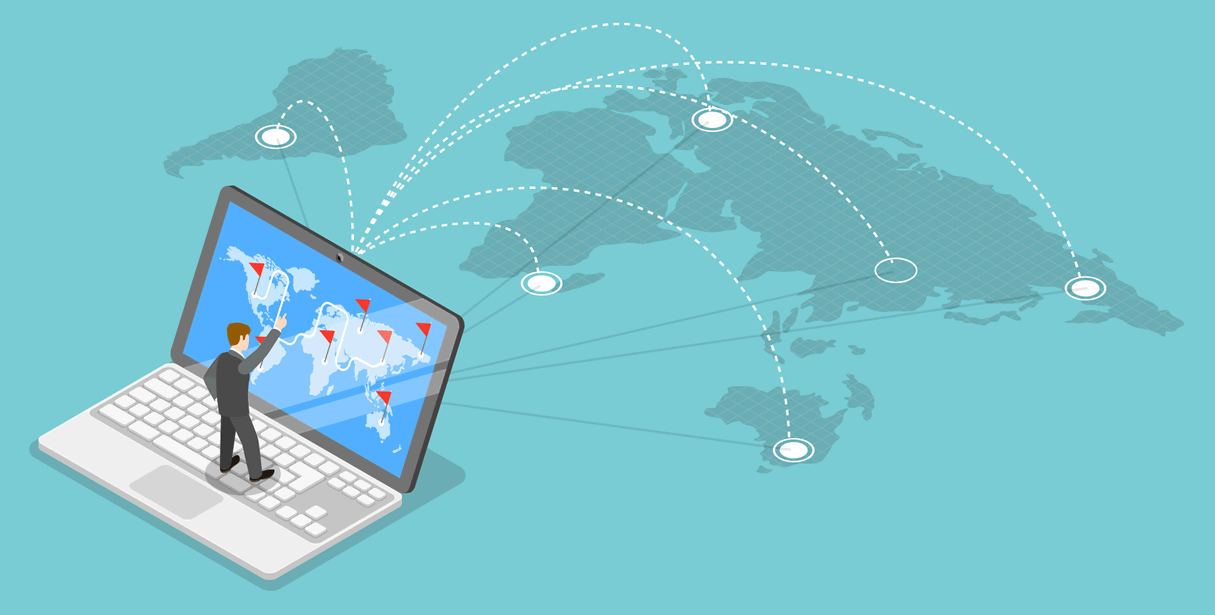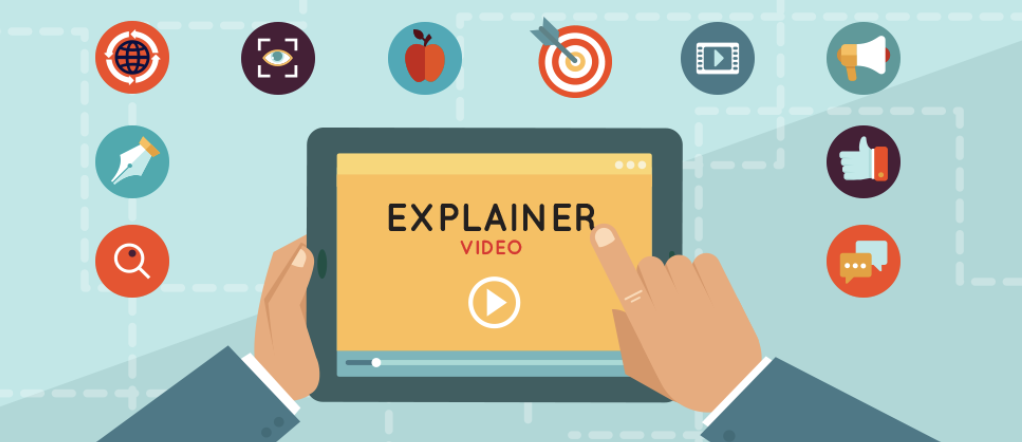Selling SaaS in a Remote World: What You Need to Know

With the spread of remote work becoming broadly accepted in recent years, companies like us that offer enterprise SaaS solutions need to be mindful of both the opportunities and complications the industry faces with remote selling.
In this blog post, we will discuss some of the most important factors to keep in mind when selling solutions in a remote world, along with how technology can be used to scale your B2B business.
Simple vs Complex Solutions
Selling a complex solution differs from selling a simple one in several ways.
At the heart of it, the main difference is that simple solutions, like products, are physical items, while an enterprise business might provide intangible solutions. Products offer a uniform solution to customers' problems, as you sell identical versions to numerous customers. On the other hand, services are more personal and tailored to each customer's individual needs. With services, you are providing expertise and knowledge to solve their problem or improve their situation.
When selling products, you have control over pricing and inventory levels. You can also easily track sales numbers and use them to measure success. Selling SaaS and complex solutions requires more effort when it comes to the pricing since there are no standard prices for most services. Additionally, tracking success with services can be difficult since there isn’t always an easy way to measure how well your solution was received by customers.
How to Sell a Complex Solution Effectively
When selling SaaS or enterprise solutions, the customer typically pays for the time and expertise of the professional or team providing the service. Therefore, you must make sure to clearly explain your qualifications and specializations that make you uniquely qualified to deliver your solution.
Additionally, since some SaaS solutions can be intangible, it can be hard to translate their value into tangible terms for customers. You need to focus on demonstrating how your solutions will benefit them and what immediate results they can expect.
Selling enterprise software is the most difficult option of the complex solution options. This is because enterprise solutions, as opposed to a business with a subscription plan that has slight flexibility for each customer, require so much integration and customization that it is not possible to simply copy and paste a solution for each customer’s problems.
While enterprise software, for example, Salesforce, can add tremendous value for companies that simpler service or product options cannot, their sales process can also be more lengthy. To successfully sell an enterprise solution, focus on consultative selling along with traditional relationship building to prove that you know how to tailor a solution precisely to their needs.
On the other hand, when selling a SaaS product or simple solution, you’re usually dealing with tangible items with predetermined values. Customers may compare your products against competitors more than they would if they were just purchasing a service. Therefore, you should focus on highlighting features such as quality materials, user-friendly designs, or brand heritage that make your product stand out from others on the market. Finally, remember to keep up with industry trends so you’re always equipped with the latest information when marketing your products.
Challenges of Complex Solutions Online
Remote selling is a great way to reach customers and make sales, but it does come with its own set of challenges. Here are three common challenges that companies face when selling SaaS and other solutions remotely.
Making a Personal Connection
With the onset of the pandemic, countless companies were forced to learn new skills and find new ways to navigate the virtual world. One of the many new skills that sales teams and leaders developed was the skill of building trust over Zoom.

One of the most important aspects of every type of sales is building relationships with prospects. And according to an article by Octane Ai, building a working relationship with customers is key to the long-term success of a business.
This is especially true for companies that sell enterprise solutions. Because enterprise software businesses do not sell tangible products and their services often solve very complicated and complex problems, building trust with customers is essential to demonstrating that their service will not only be a good use of time but will also get the results the customer desires.
Constructing a relationship of trust with customers is also crucial because it assists during the proposal process. Unlike with products, whose value is relatively objective, the individual value and cost of services vary so much that it can be difficult to sell because of the lack of standardization in prices. Having pre-established trust during this phase of the sales process will determine the success of pricing suggestions.
And while creating personal connections with customers can be challenging, utilizing tools such as video or simply following tips like listening genuinely, can make a huge difference.
Managing Time-Zone Difference
Remote sales have a variety of benefits, including broadening networks and reaching an international audience, something that was not even conceivable in the pre-digital world. But with an international audience there always runs the risk that availability might not overlap perfectly.
Another challenge of selling in a remote location is the issue of time zones. As explained by Ian Altman, when we buy a physical product, like a pen or car, the person selling us the item is not actually the person producing it. Conversely, when we buy a service, it is often that the people involved in the sales process are directly involved in delivering what the customer needs.
But this means that a time of the day that works best for the customer might not work best for the person providing the solution, and vice versa. This can lead to delays in communication and sales cycles being extended unnecessarily.
Luckily though, problems such as these can be effectively lessened and even stopped with the use of automated scheduling tools or other technology that sets up multiple time slots that work for different time zones.
Benefits of Selling Services Digitally
Contrasting some of the challenges that come with selling complex solutions online companies face, selling remotely can offer a wide range of benefits as well.
Increased Reach
The last challenge we addressed was the issue of managing time-zone differences while selling remotely. And while that challenge can be tricky to overcome, as said before, the benefit of reaching an international audience is unrivaled.
Remote selling allows businesses to reach and serve customers all over the world, without the need for a physical storefront or office. Especially for enterprise companies that sell larger-scale solutions to businesses rather than individuals, this can greatly expand your customer base and drastically increase your revenue potential.

This extensive networking opportunity can also help your business match your buyer’s preferences more readily, wherever they are located. An article by Indeed on remote selling states that since most customers prefer to browse and make purchases through virtual means, rather than in person, by conducting the sales process remotely, businesses can better adapt to their customer's preferences.
Cost Savings
Selling remotely can also be much more cost effective than traditional sales methods.
Firstly, companies that use remote selling techniques can lower or eliminate almost all costs associated with managing a physical work environment. That includes costs related to renting office space and travel expenses.
Also, with the onset of modern technology and remote communication channels, businesses can meet and interact with potential buyers virtually, saving time and money.
Finally, remote selling allows businesses to reduce labor costs by providing access to a larger pool of potential customers without the need for extra staff members.
Overall, remote selling is a great way for businesses to save costs while still reaching their target audience.
Flexibility
When COVID-19 first began disrupting work and forcing employees to work from home, many companies feared that productivity would crash drastically. But the exact opposite happened.
Labor productivity, as defined by the International Labour Organization, is the indicator of the efficiency of a country’s workforce, providing a measure of the average output generated per worker. And from an article by the same organization, it is shown that when remote work became a mandate, the world’s output of productivity more than doubled the long-term average annual rate registered between 2005 and 2019.
The third benefit to selling a complex service remotely is that remote selling provides greater flexibility in terms of scheduling and work location. Sales representatives can work from anywhere with an internet connection, which can lead to increased productivity and job satisfaction.
Getting Your Sales Tech Stack Right
Especially in today’s remote world, utilizing sales tech stacks can do wonders for the success of your business. Especially for SaaS companies and businesses that provide enterprise solutions, tools like video, sales enablement software, and automation technologies can effectively scale your business.
Video Technology
The Journal of Experimental Social Psychology found that face-to-face requests are 34 times more likely to result in positive responses than emails. This suggests that creating a personal connection with potential and existing customers is key to successful sales performance. Incorporating video as a sales enablement tool can help companies do just this - it can provide an interactive, engaging experience for the customer and create a feeling of trust and familiarity between the customer and the company.
Video can also provide visual reinforcement of information, making it easier to understand complex services. It can also be used to showcase the benefits of a service to help customers make informed decisions. SaaS companies can use videos to answer common questions that customers may have, providing customers with quick answers that don’t require them to contact customer service. Videos can also be used to show the customer how the provided complex service works, and demonstrate its features through real-life examples - something that text on a website cannot do as effectively.

Furthermore, videos allow companies to capture the attention of their target market through vivid pictures and sound bites, making it more likely for customers to purchase their products or services. All these factors combined make video an incredibly powerful tool for businesses looking to improve their sales performance by connecting better with their audience.
Sales Enablement Software
As defined by Salesforce, sales enablement uses content, coaching, training, and technology to help reps onboard, improve their skills, and sell. Sales enablement leaders care about increasing productivity, making a business impact they can measure, and getting training programs out the door faster.
And sales enablement software is simply the software that helps salespeople achieve the desired results above.
Sales enablement software is a crucial tool for any enterprise business looking to maximize its sales results. Utilizing this type of software provides sales teams and leaders with the right tools and information they need to close more deals, faster.
Sales enablement software also helps streamline the process of finding new customers, managing leads, and converting them into paying customers, optimizing the sales process in a very novel and effective way.
For companies that sell enterprise software, and who rely heavily on converting every single prospective customer because of the smaller size of their customer base (companies rather than individuals), sales enablement software also proves to be effective to increase sales by providing more interactive and engaging presentations and constructing more effective proposals.
Automation Technology
Automation technology is present in most sales technologies today because its importance is very universally agreed upon. With automation, SaaS and enterprise software companies can order their processes and increase the productivity of tasks, thus saving time and reducing overall costs. Automation can also help reduce human error, making data entry and other tasks more reliable and accurate. Additionally, automation can help to free up employees from mundane and repetitive tasks, allowing them to focus on more creative projects that require a human touch.
In addition, automation technology helps ease the follow-up process with customers. Following up might seem tedious, but when customers receive quick response times and constant communication from your company, their trust, interest, and loyalty will dramatically increase.
Overall, automation technology is an invaluable tool for businesses not just because of how it can save time and money while improving accuracy and efficiency but how it is also useful for managing customer satisfaction and long-term nurturing.
Key Takeaways
Selling SaaS or enterprise solutions in a fully remote world has become increasingly possible thanks to the rise of various forms of technology that boost efficiency and productivity. And as remote selling continues, the benefits of selling services digitally are also becoming more and more apparent.
Along with that, SaaS and enterprise software businesses have been able to leverage digital tools like sales enablement solutions to learn new skills and facilitate customer interactions remotely. Additionally, sales reps can use video conferencing tools or other digital communications systems to provide presentations or demonstrations to potential customers without ever leaving their home office. With the right technology in place, selling your service remotely can be a powerful and efficient way for your company to increase reach and gain new customers.
Reach out to us today if you are interested in learning more about how to scale your SaaS business through remote selling.
Ready to reinvent your sales process and tools?
One quick call and we'll share our approach - no pressure.
Schedule your demo